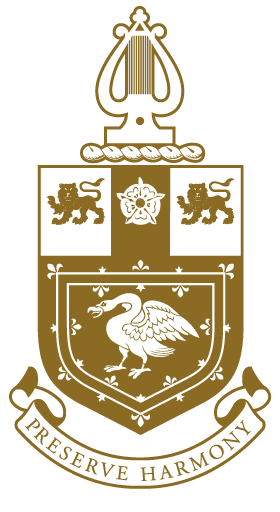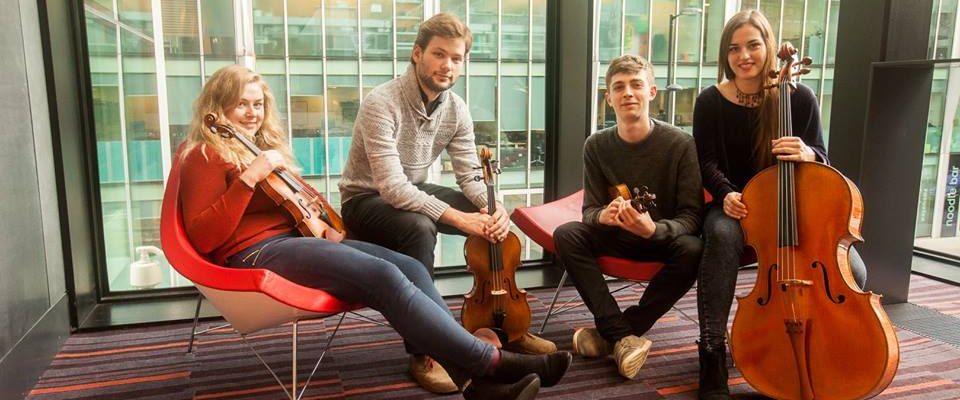Young Artist Interview: Ben Lewis
Multi-award-winning Benjamin Lewis is a baritone and recitalist who began singing as a founding member of the Hallé Youth Choir and student of Patrick McGuigan. Currently tutored by Nicholas Powell, his roles have included Buonafede (Il Mondo della Luna), Peter (Hansel and Gretel), Sharpless (Madama Butterfly), Il Conte (Le nozze di Figaro), and Count Harasova (The Jacobin) while in the 2014 Buxton Festival Chorus. Benjamin has appeared in three RNCM operas, as Boris (Paradise Moscow), Belcore (L’elisir d’amore), and Danilo (The Merry Widow). While at the RNCM he also took roles in opera scenes including Owen (Owen Wingrave), Sid (Albert Herring), Cecil (Gloriana), Rigoletto, Il Poeta (Il Turco in Italia) and Lescaut (Manon). In 2015 Benjamin was a member of the Glyndebourne chorus, and in 2016 will cover the title role in Eugene Onegin for Garsington Opera while being a member of the chorus and singing the Trojan (Idomeneo). In 2016/17 he joins the National Opera Studio as a trainee.
When did you discover your singing talent?
When I was about three years old my mother had just taken delivery of a video of The Mikado, and decided that, screaming three year old or not, she was damn well going to watch it. Apparently she put it on and, two hours later, had enjoyed an afternoon of uninterrupted Gilbert and Sullivan bliss with an enthralled child. I spent the next few years singing along dreadfully to every operetta I saw, and by ten was singing less dreadfully in choirs and shows, encouraged by my legendary primary school music teacher Mr Pearson. Age 14 I was introduced to the brilliant Paddy McGuigan, who introduced me to opera and set me on my current course.
What motivates you to sing?
Music has always been an incredibly important part of my life, with many days spent listening to my parents’ music collection ranging from Elton John to Beethoven, and music of all forms has always reliably cheered me up, moved me and inspired me. I originally wanted to keep it as a hobby so it could continue just being a bit of fun, but it ended up taking so much time during school and university that really the only option was to take it up as a career! What continues to motivate me is family, with my wife, parents, grandparents, aunts, uncles, parents-in-law… and everyone else turning up to an endless array of concerts and performances and, thankfully, enjoying them.
What makes a great baritone voice?
It’s all very subjective, but in general I like a voice that’s rich and dark, carries nicely without too much effort, works evenly from top to bottom without sounding like a tenor at the top and a bass at the bottom, and can express a good variety of emotions other than ‘I’m angry and shouting’ and ‘I’m sad and shouting’, which is what a lot of roles push baritones towards.
What are your favourite baritone arias?
I’m quite a fan of Russian arias at the moment, with the unadulterated joy of ‘Kto mozhet sravnitsas Matilda mayey’ from Iolanta at one end and the sinister nastiness of ‘S uma neydot krasavitsa’ from The Tsar’s Bride at the other. A bit obscure, but well worth looking up. Then there’s the noble death of Rodrigo, who takes five minutes to die but does so beautifully, and the difficult but intense ‘Cruda funesta smania’ from Lucia di Lamermoor… the list gets a bit endless I’m afraid!
Who are your favourite baritones and why?
Sir Thomas Allen has always come pretty high up the list. Not only does he have a beautiful voice, but he uses it to such dramatic effect both on stage and in concert. I’ve met him very briefly a few times now and have enthused at him embarrassingly each time. Benjamin Luxon has always been a solid favourite too; his original Owen Wingrave is powerful and very moving. There are numerous others I love for various reasons, but Andrei Bondarenko is another brilliant one to whom I could listen endlessly; he has a dark, even voice that he again uses to brilliant effect, and though I’ve only seen him recorded he seems a brilliant performer into the bargain.
Which roles have you enjoyed most?
I’m still only just beginning my career, so haven’t got a huge variety under my belt, but I absolutely loved playing Sharpless in a small production of Madama Butterfly a few years ago. He’s a wonderfully empathetic character who can’t stand the behaviour of Pinkerton but ends up as chief sorter-out of the whole mess. And he gets a few really beautiful bits to sing. The Count in Le nozze di Figaro is great fun since you can play around with different bits of his character and, again, there’s some very satisfying singing to be had from it. In general I’ve enjoyed every role I’ve had the chance to play so far, there’s always something interesting to get out of them, and I suspect it will only get more difficult to choose favourites as time goes on.
How do you prepare for the stage?
Usually the panic begins months before, as I start learning a role and find out just how much there is to fit in my head. The most important bit of my preparation is always assuring myself that I’m not going to fall over and forget all my words, so there’s a lot of muttering under my breath on the day of rehearsals, which is often slightly concerning for others using a bathroom or standing next to me on a train. If there’s dancing I’m always running through that mentally too, and a decent warm-up is obligatory so that I don’t worry that my vocal cords have been spirited away overnight. My wife knows better than anyone how insufferable I can be on the day of a performance since I always find something to worry about, so possibly the most important bit of my preparation is just calming down, reading a book, and listening to something other than the music I’m about to perform. Though perhaps I should be worrying about making myself too calm…
What operatic role would you most like to play?
A couple of years ago I had just discovered Eugene Onegin, and after boring my wife silly about it for weeks decided that it was definitely my absolute favourite role ever, ever, ever and that in an absolutely ideal world it was the role with which I’d love to start my career. Then last year I auditioned for Garsington Opera and was, miraculously, offered the cover of that very role. We’re just about to start performances of it, and the cover cast actually get a full performance as part of Garsington’s educational programme. I’m genuinely not sure that I’ll ever love or identify with any role more, so the role I’d most like to play is the one I’m sort of getting to do right now.
What would you do if you weren’t a baritone?
My undergraduate degree was in archaeology and anthropology, and whilst my preoccupation with singing ended up with me getting a lesser degree than I probably should have managed, if ever things were to go wrong I’d definitely try to go back to it. My personal tutor was an unending inspiration, and my experiences of actual digs and research projects were enormous fun, so if my singing career capsizes and the field was willing to have me back I’d probably don my fedora and jump back in!
What are you looking forward to this year?
Other than the chance to play Onegin, I’m jolly excited to have the chance to sing as part of Vaughan Williams’ Serenade to Music in the Last Night of the Proms 2016, which is a bit of a surreal opportunity. My mother is planning a bit of a party to watch. Then I’m off to the National Opera Studio, which is another amazing opportunity that I was a bit surprised to get, so I’m very excited to get to study a role there and sing for various agents and opera companies.
You can find out more about Benjamin Lewis at benjaminklewis.com.





